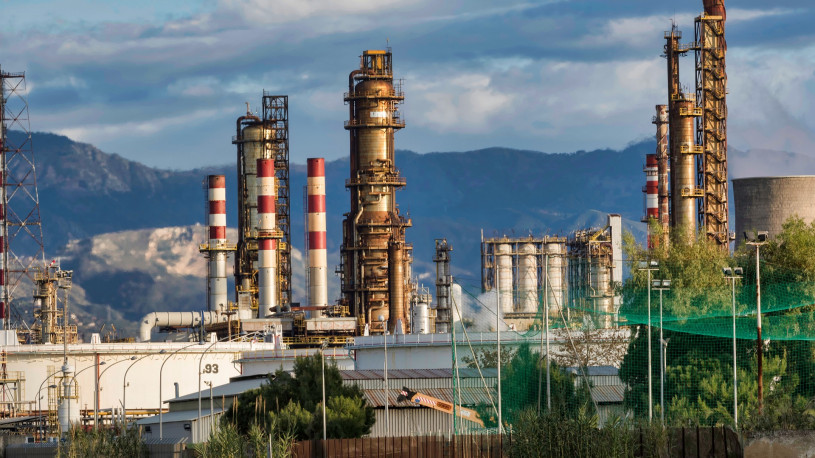-
What is the Simplest Way to Trade Chemicals?
 Continue Reading
Continue ReadingThe work of a chemicals trader, manufacturer or salesman is never easy. His products and customers have many contradictions. His chemical products are used everywhere and yet his customers are often on the other side of the world. His products are simple, often elemental, and yet specifications and grades are complex. His products are universal and yet his market is niche.
So how does he find a chemical buyer? How does a buyer find a chemical supplier?
Traditionally there are three ways to connect the businessman with the chemical product to the businessman with the money, and none of them are perfect.
- Know your product and learn who the main suppliers and buyers in the market are. Attend conferences to meet new players, and join online forums and LinkedIn groups to find those who may, or may not, at some time or other in the future want to buy or sell your goods. Stay in touch with them and then when you need to do business, you know who to contact.
- Do the legwork. Pick up the World of Chemicals directory (http://www.worldofchemicals.com/or similar yellow pages) and start phoning or emailing. The process will be time consuming and will result in very few positive responses (especially if you’re trying to sell), but the method will put you in contact with chemicals traders. That is assuming that they are genuine chemical traders.
- Stick with who you know. Their price may not be the best. Even the quality of their product may not be ideal, but by using the company that you bought or sold from last time at least you know what you are getting. The logistics will be known and the contacts legitimate, but of course this route will not help you if you have a new product, your old supplier is no longer trading in what you need or if you want to make a one-off transaction.
Each of these methods has its pros and cons. Some are more reliable and secure yet may lack competitive price advantage. Others may result in a better price, yet lack certainty of supply or quality.
Why isn’t there a better way to source chemicals? Why isn’t there a smoother route to finding a trusted supplier?
The chemicals industry is wealthy and technologically advanced, so any new system would have countless possibilities. Given this, how would your perfect chemicals trading system work? What would it look like? Would it be modelled on Wall Street or E-bay? Has Alibaba (http://www.alibaba.com/)found the answer or is it only a step towards a better solution?
Find us on facebook (https://www.facebook.com/sspotchemi) or LinkedIn (https://www.linkedin.com/groups/6716043) and tell us what you think the perfect chemicals trading system would look like. Does it already exist or is a chemicals trading Utopia simply not possible?
-
Commodity Prices Down, Share Prices Down; What Does this Mean for the Chemicals Industry?
 Continue Reading
Continue ReadingBuyers and sellers on today’s chemicals markets know how volatile chemical prices can be. But now, with stock markets down and commodity prices falling (despite a small rally in the last few days), many are wondering what affect this will have on the chemicals industry’s short and long term futures.
Those who follow the markets, will be all too aware that the Dow Jones has fallen 11% in the past twelve months and that other markets have not fared better (FTSE down 17%, Shanghai SSE down 19%, DAX down 18%). Similarly commodity prices are down; oil 40%, copper 20%, lumber 27% (although ethanol is +1% after a unsettled year).
So what does this all mean for the chemicals market? Will chemical prices fall if other markets continue to drop?
Fortunately, many analysts are predicting that the industry will be somewhat safe from the turbulence of the markets. This is largely based on the fact that whilst market speculators may get nervous at weaker than expected economic data, business insiders expect significant industry growth over the next 10 years, and beyond. Whilst commodity prices on Wall Street may tumble as investors look to move into gold or bonds for security, those playing the longer game know that demand for chemicals will remain strong and grow as economic prosperity in the Far East grows.
As stock market and commodity analyst, J.B. Maverick, says, “The long-term outlook for the chemicals sector is good, primarily due to continuing emerging market opportunities. Additionally, increasing demand in the important pharmaceuticals subsector is expected to produce growth and increase profits within the sector.”
The industry in the U.S. also looks in a good condition, aided in large part by healthy investment in shale gas. Companies including BASF, DowDupont, LyondellBasell and others are all taking advantage of this new found treasure to expand their operations. Whilst the strong US dollar is restricting exports at present, it is expected that demand from the automobile industry’s recovery, a strengthening manufacturing sector and growth in domestic end-use markets, as well as the price competitive advantage of the shale deposits will keep the industry growing for years to come.
As commodity experts at Zacks Equity Research make clear, “The American Chemical Council envisions U.S. chemical production to rise 3.2% this year and 3% in 2016, higher than 2% growth witnessed in 2014. Notwithstanding the slowdown in global manufacturing and oil price volatility, the U.S. chemical industry is seeing production volume gains. Production is expected to pick up pace on the heels of new capital investments and capacity additions.”
J.B Maverick of Investopedia.com supports this claim, stating that, “The chemicals sector has shown good overall growth rates since 2000. Chemical industries based in the United States alone have increased total annual sales revenues from approximately $600 billion per year to almost $800 billion per year. This trend is expected to continue with total annual sales topping $1 trillion by 2020.”
In Europe, the outlook is less certain for future prosperity, with data from the European Chemicals Industry Council (CEFIC) indicating that output rose just 0.3% in the first eight months of 2015, whilst prices fell 4.5% over the same period. Much of this sluggish activity is a result of high energy prices, so prospects may change if the price per barrel remains around the $30 mark. Even then, limited R&D investment and the introduction of what many see as restrictive legislation, such as REACH, are hampering growth.
In China, the economic situation is considerably brighter. Whilst some analysts are gloomy about a dip in growth rates, the region is still in relative boom, with GDP growth for January 2016 of 6.8%, according to the National Bureau of Statistics of China.
A point supported by Maverick, who writes that, “The emerging market demand for products that significantly require chemicals, such as in housing, automobiles, pharmaceuticals and agriculture, is expected to continue increasing for many years to come, especially in the two most populous countries in the world, India and China. Market analysts have expressed concern over slowdowns in China’s economy, but it is important for investors to understand these are only slowdowns in an overall growth rate that continues to outpace, significantly, the economic growth rate of more developed countries.”
Whilst there are concerns for the industry, especially if the world economy is on the brink of a 2008-style crash, the overall outlook remains positive. According to Zacks stock market and commodity specialists, “The chemical industry remains besieged by a slowdown in China, sluggishness in some parts of Europe, the impacts of crude oil price slump and a mightier greenback. Nevertheless, a gradually healing U.S. economy, strong momentum in the automotive space and an upswing in the housing market are expected to keep the industry on the path to recovery moving into 2016.”
So the future is still rosy for chemicals, what remains unclear is in which chemicals growth will be strongest. Whilst traders are able to track price trends on trading services such as http://www.alibaba.com/ and https://www.spotchemi.eu/, as any serious investor knows, ‘past performance is no guarantee of future results’.
With that in mind, in which sector (agriculture, plastics, pharmaceuticals etc.), would you invest your money?
-
How Can Chemicals Trading be Made More Efficient?
 Continue Reading
Continue ReadingIt is hard to remember the world before mobile phones, tablets and the Internet. It had its positive sides; life moved at a slower pace, we had more time to enjoy nature, read a book or enjoy the simpler things in life.
It also had its negative side; it was impossible to contact people unless you knew they were somewhere with a telephone and everyone was slower to receive information, waiting for the evening news or morning newspaper.
Shopping was a slower paced activity too, with all transactions made in person with cash or a document signed in ink. This made business a more personal affair, although a lack of information about all suppliers and buyers made the market inefficient and localised.
Today, the world is much smaller, trade is international and prices global. A coal miners’ strike in South Africa influences the price of not just coal, but all energy. This in turn affects the price of other commodities, particularly those like chemicals that use a lot of energy.
Yet despite this global linking of information, many commodity markets are still very inefficient
Change has begun. The Internet is still relatively young, and yet Amazon, Ebay and Alibaba have begun to get the world buying and selling with the click of a mouse button or touch of a tablet. People use their phones to buy cinema tickets whilst on the train, compare airplane ticket prices when at the cinema and browse for train tickets at the airport.
So why is the chemicals industry still trading at conferences? Why do salesmen attempt to sell expensive barrels of products by ringing their way through a directory? Why does a one on one conversation seem to be the best way to meet a potential business partner?
Technology has moved trading in most industries onwards and upwards, but in many ways, the chemicals market is still stuck in the past.
For years, many experts have been predicting that online B2B chemicals markets would become a reality, much as stocks and shares are traded online, or second hand cars are bought and sold. And that vision is now a fact, for a new generation of chemical trading platforms is emerging online, that are set to revolutionise the way chemical traders find buyers and sellers.
Already Alibaba is trading in wholesale quantities of raw chemical feedstocks, whilst other specialist markets such as http://www.achilles.com/ and https://www.spotchemi.eu/ have opened up trading hubs where offers to buy and sell are made round the clock.
The openness and transparency of these services make for such ease of business, where prices, terms and conditions, logistics, supply of samples, technical specification control and red tape can all be negotiated seamlessly.
So if you are an industrial chemicals trader, and if it just takes a few clicks to place an offer to buy or sell on an e-market such as spotchemi.eu for free, then why haven’t you tried it yet?
